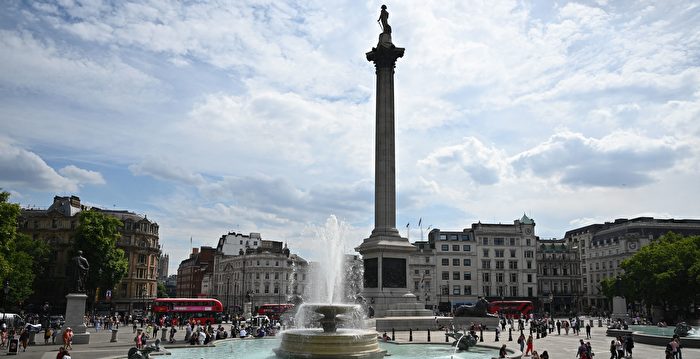[The Epoch Times, July 16, 2022](The Epoch Times reporter Li Yan comprehensive report) On Friday (July 15), wildfires raged in France, Spain and Portugal, and hundreds of people were evacuated from their homes. Meanwhile, European officials issued health warnings about a heatwave in the coming days.
France: 11,300 evacuated
More than 1,000 firefighters, backed by water jets, have been trying to contain two blazes in southwestern France since Tuesday (July 12). Fueled by scorching heat, flammable environmental conditions and strong winds, the raging fires became more intense.
In France’s Gironde region, 11,300 people have been evacuated since wildfires broke out around the Dune du Pilat and Landiras. About 7,350 hectares (18,000 acres) of land were burned. Authorities said the blaze had not been stabilized.
Portugal: Coping with 17 fires
While temperatures in Portugal have dropped slightly, temperatures are still expected to exceed 40C (104F) in some places, with five areas on red alert and more than 1,000 firefighters responding to 17 wildfires, authorities said.
The northern Portuguese town of Pinhao on Thursday became the country’s hottest temperature of the day at 47°C (116.6°F), just below the record.
Reuters reported that 73-year-old Raymond Loadwick, a retiree from the United Kingdom, now lives in Portugal’s Leiria district. He had to leave his home with his dog, Jackson, on Tuesday when flames began to burn into a hill near his home overgrown with highly flammable eucalyptus and pine trees.
When he returned a day later, his white house was untouched, but the surrounding vegetation had turned to ashes and his fruit trees had been burned. Laudwick is terrified that fires will occur more frequently in the future. “You have to be vigilant,” he told Reuters.
Spain: 17 wildfires are being extinguished
In Spain, the environment ministry said it was helping to fight 17 wildfires scattered across the country.
Wildfires have been burning in parts of Extremadura on the border with Portugal and in central Castille and Leon, with four more late Thursday and Friday. A small village was forced to evacuate.
Flames are now threatening a 16th-century monastery and a national park. Hundreds of people have been evacuated since the fires and 7,500 hectares of forest have been destroyed in both areas.
In northeastern Catalonia, authorities suspended camping and sports activities around 275 towns and villages to prevent fire risks and limit farm work involving machinery.
Italy: State of emergency declared along Po river
And in Italy, the worst drought in more than 70 years has left parts of the country’s longest river, the Po, to a trickle. The Po River supports about one-third of the country’s agricultural production.
Facing its hottest July since 1800, Italy has declared a state of emergency along the Po River. Temperatures are expected to rise next week.
As scorching heat slams across the continent, officials worry about how it will affect people’s health and a healthcare system already challenged by the COVID-19 pandemic.
UK: First ever red warning
British weather forecasters issued the first-ever red “extreme heat” warning for parts of England on Monday and Tuesday.
Met Office forecaster Greg Dewhurst said on Monday it could be Britain’s “hottest day so far this year”. The UK’s previous “hottest day so far this year” was June 17, when the temperature at London’s Heathrow Airport was 32.7°C.
“There could be unusual temperatures early next week, maybe record breaking,” said Bureau of Meteorology chief meteorologist Paul Gundersen.
“Nights can also be unusually warm, especially in urban areas. This could lead to widespread impacts on people and infrastructure,” he said.
The highest temperature recorded in the UK was 38.7°C (101.7°F) recorded in Cambridge on 25 July 2019.
Hannah Cloke, a climate expert at the University of Reading in the UK, said it was time for Britons to learn to adapt.
“It’s harder to deal with these types of temperatures in the UK because we’re really not used to it.”
World Meteorological Organization: Heatwaves will worsen air quality
Heatwaves will worsen air quality, especially in towns, the World Meteorological Organization said.
“A stagnant atmosphere acts like a lid, trapping atmospheric pollutants, including particulate matter,” Lorenzo Labrador, WMO science officer, told a news conference in Geneva inside.”
“These lead to reduced air quality and adverse health effects, especially for vulnerable populations.”
Portugal’s health minister, Marta Temido, said on Thursday that the health system was facing a “particularly worrying” week due to the heatwave, saying some hospitals were already overwhelmed.
Portugal registered 238 excess deaths due to heatwaves from July 7 to July 13, the Portuguese health authority said. Spain recorded 84 excess deaths due to extreme temperatures in the first three days of the heatwave, according to the database of the National Epidemiology Center.
Responsible editor: Li Yuan#
